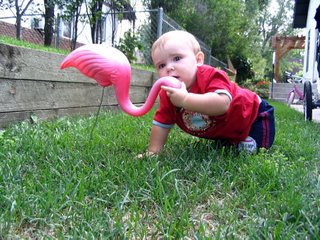Thursday, August 31, 2006
Dependency Ratios and Economic Growth/Decline
Malcolm Gladwell has an article in the August 28 issue of the New Yorker that caught my attention (by the way, his website and blog are also interesting if you like that sort of thing).
In the article, he linked the cause of Ireland's economic miracle and the financial crisis at G.M. to what demographers call the "dependency ratio". This is the "relation between the number of people who aren't of working age and the number of people who are."
The relationship is this.
"In the past two decades, for instance, Ireland has gone from being one of the most economically backward countries in Western Europe to being one of the strongest: its growth rate has been roughly double that of the rest of Europe. There is no shortage of conventional explanations. Ireland joined the European Union. It opened up its markets. It invested well in education and economic infrastructure. It's a politically stable country with a sophisticated, mobile workforce."
"But, as the Harvard economists David Bloom and David Canning suggest in their study of the 'Celtic Tiger,' of greater importance may have been a singular demographic fact. In 1979, restrictions on contraception that had been in place since Ireland's founding were lifted, and the birth rate began to fall. In 1970, the average Irishwoman had 3.9 children. By the mid-nineteen-nineties, that number was less than two. AS a result, when the Irish children born in the nineteen-sixties hit the workforce, there weren't a lot of children in the generation just behind them. Ireland was suddenly free of the enormous social cost of supporting and educating and caring for a large dependent population."
G.M.'s decline, on the other hand is, according to Gladwell, due to the 1950's president of General Motors, Charles E. Wilson. At the time there was a proposal in 1959 by the head of the Toledo local of the United Auto Workers, Richard Gosser to create a regional pension plan to spread risks across many small auto-parts makers, electrical-appliance manufacturers, and plastic shops in the Toledo area. "Every company in the area, Gosser proposed, should pay ten cents an hour, per worker, into a centralized fund."
According to Gladwell, business owners were terrified: 'This might be efficient and rational, but it's too dangerous.' Instead, they, lead by Wilson, offered a company pension. "They took on the costs of setting up an individual company pension, at great expense, in order to head off what thye saw as too much organized power for workers in the region." Or, in other words: "collectivization was a threat to the free market and to the autonomy of business owners. In [Wilson's] view, companies themselves ought to assume the risks of providing insurance."
This is all fine and dandy when you've got a lot of business, and loads of workers and only a few retirees. Or, in demographese: low dependency ratios (nonworker-to-worker ratio). "Charlie Wilson's promise to his workers, then, contained an audacious assumption about G.M.'s dependency ratio: that the company would always ahve enough active workers to cover the costs of its retired workers--that it would always be like Ireland."
Apparently Wilson never read Schumpeter.
Or any economic development theory for that matter.
Of course, as it happens in strong, dynamic economies, where people are free to act entreprenurially, production in any and all industries a) becomes mroe efficient(read: less workers needed to produce the same output) and b) evolves in order to decrease costs (read: any attempt to substitute capital for labor in order to decrease labor costs which are usually the bulk of expenses). "In 1962, G.M. had four hundred and sixty-four thousand U.S. employees and was paying benefits to forty thousand retirees and their spouses, for a dependency ratio of 1 to 11.6. Last year, it had a hundred and forty-one thousand workers and paid benefits to four hundred and fifty-three thousand retirees, for a dependency ratio fo 3.2 to 1.
What does all of this mean? "Markets work best when the burdens of benefits are broadly shared."
In the article, he linked the cause of Ireland's economic miracle and the financial crisis at G.M. to what demographers call the "dependency ratio". This is the "relation between the number of people who aren't of working age and the number of people who are."
The relationship is this.
"In the past two decades, for instance, Ireland has gone from being one of the most economically backward countries in Western Europe to being one of the strongest: its growth rate has been roughly double that of the rest of Europe. There is no shortage of conventional explanations. Ireland joined the European Union. It opened up its markets. It invested well in education and economic infrastructure. It's a politically stable country with a sophisticated, mobile workforce."
"But, as the Harvard economists David Bloom and David Canning suggest in their study of the 'Celtic Tiger,' of greater importance may have been a singular demographic fact. In 1979, restrictions on contraception that had been in place since Ireland's founding were lifted, and the birth rate began to fall. In 1970, the average Irishwoman had 3.9 children. By the mid-nineteen-nineties, that number was less than two. AS a result, when the Irish children born in the nineteen-sixties hit the workforce, there weren't a lot of children in the generation just behind them. Ireland was suddenly free of the enormous social cost of supporting and educating and caring for a large dependent population."
G.M.'s decline, on the other hand is, according to Gladwell, due to the 1950's president of General Motors, Charles E. Wilson. At the time there was a proposal in 1959 by the head of the Toledo local of the United Auto Workers, Richard Gosser to create a regional pension plan to spread risks across many small auto-parts makers, electrical-appliance manufacturers, and plastic shops in the Toledo area. "Every company in the area, Gosser proposed, should pay ten cents an hour, per worker, into a centralized fund."
According to Gladwell, business owners were terrified: 'This might be efficient and rational, but it's too dangerous.' Instead, they, lead by Wilson, offered a company pension. "They took on the costs of setting up an individual company pension, at great expense, in order to head off what thye saw as too much organized power for workers in the region." Or, in other words: "collectivization was a threat to the free market and to the autonomy of business owners. In [Wilson's] view, companies themselves ought to assume the risks of providing insurance."
This is all fine and dandy when you've got a lot of business, and loads of workers and only a few retirees. Or, in demographese: low dependency ratios (nonworker-to-worker ratio). "Charlie Wilson's promise to his workers, then, contained an audacious assumption about G.M.'s dependency ratio: that the company would always ahve enough active workers to cover the costs of its retired workers--that it would always be like Ireland."
Apparently Wilson never read Schumpeter.
Or any economic development theory for that matter.
Of course, as it happens in strong, dynamic economies, where people are free to act entreprenurially, production in any and all industries a) becomes mroe efficient(read: less workers needed to produce the same output) and b) evolves in order to decrease costs (read: any attempt to substitute capital for labor in order to decrease labor costs which are usually the bulk of expenses). "In 1962, G.M. had four hundred and sixty-four thousand U.S. employees and was paying benefits to forty thousand retirees and their spouses, for a dependency ratio of 1 to 11.6. Last year, it had a hundred and forty-one thousand workers and paid benefits to four hundred and fifty-three thousand retirees, for a dependency ratio fo 3.2 to 1.
What does all of this mean? "Markets work best when the burdens of benefits are broadly shared."
Apples and Oranges: The Beginnings of My Short New Adventure
Yesterday I attended a "new faculty orientation" at Macalester.
It was enlightening, to say the least.
The two most significant differences between that small "highly selective liberal arts college" and the second-rate public state school that I call home is a) the students and their personal characteristics on average, and b) the type of service that each institution offers those students.
Both differences have immediate implications for the faculty members.
The dean of students talked extensively about the character of the students at Macalester. It is not surprising that the average student admitted to Macalester has a SAT score of 1400 and a 31 ACT composite, 65 percent of entering students graduated in the top 10 percent of their high school class and 10 percent of entering students are National Merit Scholars.
They're smart. No doubt about it. But this dean emphasized other characteristics. The following comes directly from the copious notes I took during this portion of the program.
They are sheltered. They are taught that they are special. They may have experienced a graduation program from their preschool. They have received what she called "empty applause" meaning that they have been rewarded for things that are not necessarily deserved. They are extremely confident, but this confidence is fragile. One result of this is that they have a sense of entitlement and when they arrive on campus, it is as if they say: "Look at me!" "Here I am!" "Take care of me now. . ."
In terms of advising, they want a prescriptive solution: tell me what I should major in.
Students expect to be known on campus. This creates serious repercussions for faculty because the students expect them to know them personally. Often how hard they are willing to work in a particular class is a function of how personal the instructor is willing to get with the students.
The parents are another ball of wax. Some want daily updates and experience a need to continue to shelter their students. It is very hard for these parents to stop being involved. One survey found that first year women talked with their parents SEVEN (yes, that's 7!) times per day. One faculty member last year received a daily email from a parent in India: "Please make sure that Suzy's eating. . . Did you know that she can't stand her roommate?"
Another story from the dean is that she once received an angry phone call from a parent about a student's grade on a particular exam. While on the phone, the dean pulled up the student's record and realized that he/she was IN THE CLASS AT THAT MOMENT! Apparently the instructor had passed back the test and the student immediately sent her mom a disgruntled text-mail.
On the other hand, the students sound smart and highly motivated. Their motto is "Work hard, play hard, sleep none." They are liberal and feel like issues of race and sexuality should be solved already. Ironically, they are highly aware of class and global issues associated with class.
I say this ironically because as compared to my students (and I don't know the numbers on this) I expect that few of them either a) work during school or even during breaks or b) have to pay for their education themselves. The majority of my students do both AND have very little awareness of class issues (I once asked a class who among them received an ACT score higher than 32. A few raised their hands. I asked those if they considered applying to college elsewhere. Say Yale? They shook their heads. Then I asked if they thought President Bush got a 32 on his ACT score. They have no clue what I'm talking about). Furthermore, at least a third of my students are first-generation college attenders in their family (another rarity for at least the American Mac students).
This all feels overwhelming to me as a faculty member at Mac. The full-time faculty teach fewer students per class and one fewer class per year than do I during a normal load, but they more than make up for it with the hand-holding required of them. The college prides itself in not letting any student "slip through the cracks." This means also that faculty members are expected to be "first responders." This means that they should keep track of attendance and possible personal issues that the students might face that may impede their performance including alcohol or drug abuse. Of course, if presented with this, I would take it seriously, but I do not consider this to be one of my main duties as a faculty member. They are adults. Why not treat them as such.
Additionally, through all of this, I could not help but thing of the SYO and Big. Are we raising them to be too sheltered? To feel too special? Does the medal the SYO receives after her 4-5 year old soccer season ends give her mixed messages despite her two left feet?
I once heard a story on This American Life about a comedienne whose father once told her that his praises must mean something more than her mother's simply BECAUSE they are conditional.
At the time, I thought this hilarious, but now I'm wondering if they are words to live by.
Good luck in first grade Sweet Pea (but don't expect a graduation ceremony until high school -wink!-).

It was enlightening, to say the least.
The two most significant differences between that small "highly selective liberal arts college" and the second-rate public state school that I call home is a) the students and their personal characteristics on average, and b) the type of service that each institution offers those students.
Both differences have immediate implications for the faculty members.
The dean of students talked extensively about the character of the students at Macalester. It is not surprising that the average student admitted to Macalester has a SAT score of 1400 and a 31 ACT composite, 65 percent of entering students graduated in the top 10 percent of their high school class and 10 percent of entering students are National Merit Scholars.
They're smart. No doubt about it. But this dean emphasized other characteristics. The following comes directly from the copious notes I took during this portion of the program.
They are sheltered. They are taught that they are special. They may have experienced a graduation program from their preschool. They have received what she called "empty applause" meaning that they have been rewarded for things that are not necessarily deserved. They are extremely confident, but this confidence is fragile. One result of this is that they have a sense of entitlement and when they arrive on campus, it is as if they say: "Look at me!" "Here I am!" "Take care of me now. . ."
In terms of advising, they want a prescriptive solution: tell me what I should major in.
Students expect to be known on campus. This creates serious repercussions for faculty because the students expect them to know them personally. Often how hard they are willing to work in a particular class is a function of how personal the instructor is willing to get with the students.
The parents are another ball of wax. Some want daily updates and experience a need to continue to shelter their students. It is very hard for these parents to stop being involved. One survey found that first year women talked with their parents SEVEN (yes, that's 7!) times per day. One faculty member last year received a daily email from a parent in India: "Please make sure that Suzy's eating. . . Did you know that she can't stand her roommate?"
Another story from the dean is that she once received an angry phone call from a parent about a student's grade on a particular exam. While on the phone, the dean pulled up the student's record and realized that he/she was IN THE CLASS AT THAT MOMENT! Apparently the instructor had passed back the test and the student immediately sent her mom a disgruntled text-mail.
On the other hand, the students sound smart and highly motivated. Their motto is "Work hard, play hard, sleep none." They are liberal and feel like issues of race and sexuality should be solved already. Ironically, they are highly aware of class and global issues associated with class.
I say this ironically because as compared to my students (and I don't know the numbers on this) I expect that few of them either a) work during school or even during breaks or b) have to pay for their education themselves. The majority of my students do both AND have very little awareness of class issues (I once asked a class who among them received an ACT score higher than 32. A few raised their hands. I asked those if they considered applying to college elsewhere. Say Yale? They shook their heads. Then I asked if they thought President Bush got a 32 on his ACT score. They have no clue what I'm talking about). Furthermore, at least a third of my students are first-generation college attenders in their family (another rarity for at least the American Mac students).
This all feels overwhelming to me as a faculty member at Mac. The full-time faculty teach fewer students per class and one fewer class per year than do I during a normal load, but they more than make up for it with the hand-holding required of them. The college prides itself in not letting any student "slip through the cracks." This means also that faculty members are expected to be "first responders." This means that they should keep track of attendance and possible personal issues that the students might face that may impede their performance including alcohol or drug abuse. Of course, if presented with this, I would take it seriously, but I do not consider this to be one of my main duties as a faculty member. They are adults. Why not treat them as such.
Additionally, through all of this, I could not help but thing of the SYO and Big. Are we raising them to be too sheltered? To feel too special? Does the medal the SYO receives after her 4-5 year old soccer season ends give her mixed messages despite her two left feet?
I once heard a story on This American Life about a comedienne whose father once told her that his praises must mean something more than her mother's simply BECAUSE they are conditional.
At the time, I thought this hilarious, but now I'm wondering if they are words to live by.
Good luck in first grade Sweet Pea (but don't expect a graduation ceremony until high school -wink!-).

Monday, August 28, 2006
On Following the Actions and Advice of Adults
We've been having an ongoing discussion with the SYO lately on listening to her own internal voice in order to gauge "right" and "wrong".
This discussion followed a couple of interesting events.
The first occurred after the little black cat had escaped through the front door into the outside world for the fifth time in a day.
A raucus "Goddamnit!" poured out of the SYO's mouth.
If you haven't heard that, from a six year old's mouth, let me just say that it sounds entirely different than from the mouth of an adult. Furthermore, it is like holding up this huge mirror in front of your face. A mirror with bright halogen lights like the ones placed conspiritorially in swimsuit changing rooms. A mirror that shows all of your blackheads, wrinkles and tartar.
The second incident involved two neighborhood girls and our little angel. They were running around in the front yard in the dusk, stealing a few minutes of play before beadtime as we chatted outside with some parents.
They had run out of my view, behind our front hill. I noticed a woman walking her dog and soon after the girls came running back to us. At the time I thought nothing of it.
That night the SYO relayed to us what had transpired with the dog walker and her two neighborhood pals.
Apparently they had been together shaking a new little tree on our boulevard and the woman told them that they shouldn't shake it. One particularly headstrong girl of the three apparently continued to shake it despite the stranger's warning (although the details on this were slightly unclear. I'm sure that the SYO's story was designed to present her best side.). What came next astonished our SYO: the stranger muttered back "What a naughty little girl!"
In her story, the SYO was appalled! How could a stranger tell THEM what to do? She wasn't their parent, after all.
Alone, I coached the SYO after she proclaimed innocence from either a) saying the bad word (SYO: I ALWAYS follow your lead! BioMom: Then why don't you get out of the pool when we ask?) and b) that you always say not to listen to strangers!
I talked with her a bit about listening to her "heart of hearts" and that what is "right" and "wrong" doesn't necessarily depend on the source.
Me: In your heart of hearts, do you think that the stranger with the dog was right or wrong in telling you all to stop shaking the tree?
SYO (sheepishly): Right.
Me: And when your mom and I say 'goddamnit'. . . Were we right or wrong.
SYO (again, sheepishly): Wrong.
Me: See? You know what is right and wrong in your heart. There will be more times now that you are not with us. Times that you will have to decide how to behave. Times that only you will be able to judge yourself and your own behavior.
On a lighter note, we found out that Big likes pickles!


This discussion followed a couple of interesting events.
The first occurred after the little black cat had escaped through the front door into the outside world for the fifth time in a day.
A raucus "Goddamnit!" poured out of the SYO's mouth.
If you haven't heard that, from a six year old's mouth, let me just say that it sounds entirely different than from the mouth of an adult. Furthermore, it is like holding up this huge mirror in front of your face. A mirror with bright halogen lights like the ones placed conspiritorially in swimsuit changing rooms. A mirror that shows all of your blackheads, wrinkles and tartar.
The second incident involved two neighborhood girls and our little angel. They were running around in the front yard in the dusk, stealing a few minutes of play before beadtime as we chatted outside with some parents.
They had run out of my view, behind our front hill. I noticed a woman walking her dog and soon after the girls came running back to us. At the time I thought nothing of it.
That night the SYO relayed to us what had transpired with the dog walker and her two neighborhood pals.
Apparently they had been together shaking a new little tree on our boulevard and the woman told them that they shouldn't shake it. One particularly headstrong girl of the three apparently continued to shake it despite the stranger's warning (although the details on this were slightly unclear. I'm sure that the SYO's story was designed to present her best side.). What came next astonished our SYO: the stranger muttered back "What a naughty little girl!"
In her story, the SYO was appalled! How could a stranger tell THEM what to do? She wasn't their parent, after all.
Alone, I coached the SYO after she proclaimed innocence from either a) saying the bad word (SYO: I ALWAYS follow your lead! BioMom: Then why don't you get out of the pool when we ask?) and b) that you always say not to listen to strangers!
I talked with her a bit about listening to her "heart of hearts" and that what is "right" and "wrong" doesn't necessarily depend on the source.
Me: In your heart of hearts, do you think that the stranger with the dog was right or wrong in telling you all to stop shaking the tree?
SYO (sheepishly): Right.
Me: And when your mom and I say 'goddamnit'. . . Were we right or wrong.
SYO (again, sheepishly): Wrong.
Me: See? You know what is right and wrong in your heart. There will be more times now that you are not with us. Times that you will have to decide how to behave. Times that only you will be able to judge yourself and your own behavior.
On a lighter note, we found out that Big likes pickles!


Saturday, August 26, 2006
Forbes: On Not Marrying Career Women
Damn. I wish I would have read this BEFORE marriage.
Oh, yeah. I can't get married.
Oh yeah. I NEEDED to marry a "career girl" since I'm an academic and don't earn enough money to buy a house AND pay off my grad school loans.
Check out the original Forbes article, the Gawker's CliffsNotes and the counterpoint posted by a friend of mine's office.
Oh, yeah. I can't get married.
Oh yeah. I NEEDED to marry a "career girl" since I'm an academic and don't earn enough money to buy a house AND pay off my grad school loans.
Check out the original Forbes article, the Gawker's CliffsNotes and the counterpoint posted by a friend of mine's office.
Saturday, August 19, 2006
Too Much To Say



I've been a negligent blogger lately.
Just too much going on, I can't complain though.
BioMom turned 40 a few days ago and we awoke to find 40 flamingos in the front yard.
I received a negative review from a second rate journal for the fourth time on a paper that I started seriously working on in 2001.
Sometimes I wish that I had a job in which I saw projects from start-to-finish within a period of a few days.
One of the critiques was that I did not have a clear intuitive explanation for one the statistics that I was producing.
Unfortunately, I was unaware of a clear intuitive explanation. I contacted the author of said statistic and recevied the following comment from him:
Hi [Blogauthor],
You are right. [Coauthor] and I could not come up with a clear intuitive
explanation like the one for the Dissimilarity index which shows the
proportion of one of the groups that would have to shift to make the index
show perfect integration. But, in fairness, I'm not sure that the S index,
or the other indexes have a neat summary intuitive explanation either.
Too bad I can't forward this email to the anonymous reviewer.
My coauthor and I promptly readdressed the paper and sent it to a different journal.
Oh, and Big grew two top teeth. Painfully, loudly, sleeplessly, they stretched their way into his gums.
Tuesday, August 08, 2006
Nascar for Babies
We're lucky enough to have this lovely little free public foot-deep pool and park about three blocks from our house.
The trek is just short enough to warrant walking or biking rather than going via automobile, but just long enough for the SYO to get in a few are we there's yet coupled with heavy sighs and rolls of the shoulders in dramatic overture.
Now that the water's warmed a bit, Big loves it as well.
I discovered, however, that he seems to love it in a unique way as compared to not only the other babies there, but also as compared to the other big kids, and it took me a while to figure this out.
The yellow baby floatie, in the last couple of weeks or so, now fits him such that he can actually stand on the floor of the pool while leaning over on the edge of the floatie.
To him, this must be not unlike us wearing a scuba suit or entering into the nonatmosphere of space that enables us to let go of our earthenly weight: In the floatie, he is light enough to experience walking!
At first, he just walked up to the edge and grabbed at toys or at the cement edge.
Then I noticed that he seemed to like the other flotation devices in the pool and would sort of grab at them as another wee one made his or her orbit.
When he noticed one particularly pink one, I noticed him becoming more encroaching-hawkish even-about grabbing at it, in an act that, ultimately, could be described as nothing less than a chase. At one point the little girl in the middle of the pink tube turned around, annoyed, and said to me:
I don't want him grabbing my floatie!!!
The trek is just short enough to warrant walking or biking rather than going via automobile, but just long enough for the SYO to get in a few are we there's yet coupled with heavy sighs and rolls of the shoulders in dramatic overture.
Now that the water's warmed a bit, Big loves it as well.
I discovered, however, that he seems to love it in a unique way as compared to not only the other babies there, but also as compared to the other big kids, and it took me a while to figure this out.
The yellow baby floatie, in the last couple of weeks or so, now fits him such that he can actually stand on the floor of the pool while leaning over on the edge of the floatie.
To him, this must be not unlike us wearing a scuba suit or entering into the nonatmosphere of space that enables us to let go of our earthenly weight: In the floatie, he is light enough to experience walking!
At first, he just walked up to the edge and grabbed at toys or at the cement edge.
Then I noticed that he seemed to like the other flotation devices in the pool and would sort of grab at them as another wee one made his or her orbit.
When he noticed one particularly pink one, I noticed him becoming more encroaching-hawkish even-about grabbing at it, in an act that, ultimately, could be described as nothing less than a chase. At one point the little girl in the middle of the pink tube turned around, annoyed, and said to me:
I don't want him grabbing my floatie!!!
Monday, August 07, 2006
A Dramatic Reenactment
The SYO comes trotting down the stairs for breakfast after watching a few cartoons.
Do you have a bell?
Um. Yeah! I think I have an old cow bell down in the laundry room.
Can I use it?
Sure. . . What for?
Well, my ankle, well, it sort of hurts when I walk. You know. So, I want the bell so that I can, you know, sit up in bed and. . . . Well, if I need anything. Well, I can ring the bell. . .
Oh. . . So you want the bell so that I will respond to your every need when you ring it?
Yeah. Because my ankle is broken.
But you're walking on it.
Yeah. It is still broken.
Come to think of it, I don't have a bell.
Then, later, while walking up to her room I hear:
Ow. Ow. Ow. Ow. Ow. For each step.



Do you have a bell?
Um. Yeah! I think I have an old cow bell down in the laundry room.
Can I use it?
Sure. . . What for?
Well, my ankle, well, it sort of hurts when I walk. You know. So, I want the bell so that I can, you know, sit up in bed and. . . . Well, if I need anything. Well, I can ring the bell. . .
Oh. . . So you want the bell so that I will respond to your every need when you ring it?
Yeah. Because my ankle is broken.
But you're walking on it.
Yeah. It is still broken.
Come to think of it, I don't have a bell.
Then, later, while walking up to her room I hear:
Ow. Ow. Ow. Ow. Ow. For each step.



Beware Garage Sale Sizes

I picked up this night shirt at a friend's garage sale.
It is sized 18 months.
I put it on him the night before and, because it had been so difficult to get over his head and through one arm, I figured that I had two choices:
1. remove the shirt from head and arm or
2. go ahead and stretch it on to the other arm avoiding the fight for the next day when he wouldn't be so tired.
I know jammies are supposed to be tight, but a sausage they are not supposed to resemble!
Wednesday, August 02, 2006
Whose Birthday Is It Anyway?
Mother of Four mentioned to 3of4 that it was the SYO's Mom's birthday and that they'd be heading down to our place for some ice cream cake.
Which one?
Which Mom?
Yeah. The one who works, or the one who rides her bike?
Which one?
Which Mom?
Yeah. The one who works, or the one who rides her bike?
Subscribe to:
Comments (Atom)


